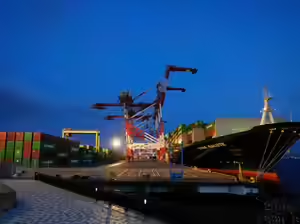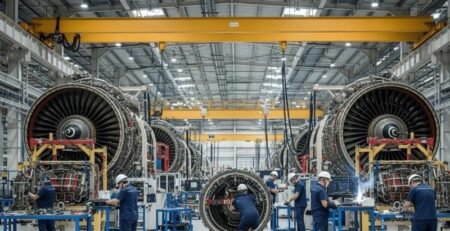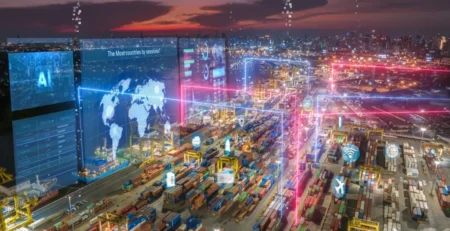Exclusive: How AI is Quietly Redefining Global Logistics—One Algorithm at a Time

By Eva Richardson | The Logistic News
Artificial intelligence isn’t disrupting logistics in a flash. It’s doing it in layers — quietly, methodically, and in ways that are already impossible to ignore.
While the industry has long relied on technology for process optimization, AI is taking that logic further — giving logistics companies the ability to forecast demand with precision, automate at scale, and mitigate risk before it spreads. What’s changing is not just the pace of operations, but the mindset behind them.
From Labor-Intensive to Data-Driven
Across warehouses and distribution centers, AI is replacing manual workflows with machine-led orchestration. Robots powered by neural networks are sorting, scanning, and moving inventory without a pause. Machine learning systems are predicting peak demand periods weeks in advance, allowing companies to avoid overstocks and shortages before they happen.
“In our fulfillment centers, AI has evolved from a tool to a necessity,” says a senior operations manager at a European logistics firm. “It’s not just about speed. It’s about knowing what’s coming before the order even drops.”
Fleet managers are now using AI to calculate optimal routes in real time, based on traffic, fuel efficiency, weather patterns, and delivery urgency. This level of intelligent planning was unimaginable a decade ago.
The Rise of Predictive Resilience
Perhaps the most overlooked benefit of AI is its role in managing uncertainty. In an era where supply chain disruptions are both frequent and costly, predictive models are helping companies reroute shipments, shift capacity, or alert customers before breakdowns occur.
Air cargo operators are using AI to predict customs clearance delays. Ocean carriers are forecasting port congestion. Road freight companies are analyzing driver behavior to reduce accident risks. And all of this happens in real time, on dashboards designed for action — not just observation.
“AI doesn’t solve risk. But it makes you faster, calmer, and smarter when risk is at the door,” says the CTO of a leading freight tech platform.
A Competitive Divide
But there’s a growing gap between those moving with AI — and those resisting it. While large integrators and platform-native freight companies are embedding AI deeply into their infrastructure, many small and mid-size operators are still navigating legacy systems and limited budgets.
For them, the challenge isn’t just cost. It’s cultural. It’s about shifting from instinctive to insight-driven management. And that transition, experts say, is less about tech and more about trust.
“Companies that see AI as a threat will always be playing catch-up,” notes a digital transformation advisor. “Those that see it as an augmentation are already ahead.”
What’s Next?
As AI models become more explainable and accessible, adoption is likely to accelerate across logistics. Industry analysts expect that by 2027, over 60% of logistics operations will rely on AI for at least one core function — from routing to inventory planning to customer service automation.
But the smartest players are not waiting for the technology to mature. They’re investing in hybrid teams: data scientists working alongside dispatchers, automation engineers collaborating with floor supervisors, and machine learning experts building tools with real-world operators.
Because in the end, AI is not just about machines learning. It’s about humans learning how to work with them.
The post Exclusive: How AI is Quietly Redefining Global Logistics—One Algorithm at a Time appeared first on The Logistic News.
Share this post
Related
Posts
Finland warns of probable attempts to sabotage underwater infrastructure
Finland is raising its voice on a subject that has become critical for Europe: the vulnerability of cables, telecom links,...
Exports are still progressing, but the decline toward the United States is worrying
Japan records a fourth consecutive month of export growth, driven by solid demand in certain technological segments. But behind this...
The value of engines boosts teardowns and strains the freighter chain.
Engines are sometimes worth more than the plane: “teardowns” are accelerating and the freighter conversion chain is tightening Context: Engines...
Data becomes the strategic weapon of shipping in 2026
The digital transformation of the maritime sector is reaching a turning point: by 2026, data will no longer be a...




